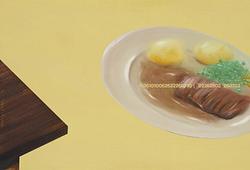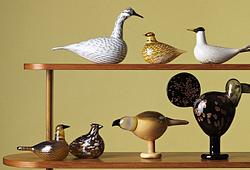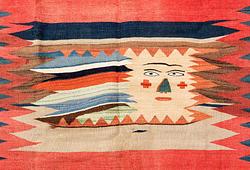Tallrikar, sju stycken, porslin. Royal Copenhagen, "Flora Danica", Danmark, 1900-tal.
Märkta med modellnummer 3550. Målad polykrom och förgylld dekor efter plaschverk över den danska floran. Diameter 22,5 cm.
Obet slitage.
Utställningar
The first Flora Danica service has an amazing story of war and alliance. In 1788-89 Russia and Sweden are at war. At the time Russia and Denmark are defence allies – but in the crucial hour Denmark fails to support the Russian army. Thus, the Danish King needs to make amends and come up with a reconciliation gift worthy of the Russian Empress. In 1790 he places an order for a dinner service so magnificent it can dazzle the whole world - the Flora Danica dinner service- and definitely an Empress like Catherine the 2nd, who is a notorious collector of fine porcelain. The production takes a long time and unfortunately the Empress dies before it is finished and the porcelain never crosses the boarders of Denmark.
1530 pieces still remain with the Royal Household of Denmark today, the service was first used in 1803. It has continued to work as an ambassador and a distinquished gift. Upon the marriage of princess Alexandra to Edward 7th of Wales in 1862, she brought with her an impressive Flora Danica dinner service. The service has continued to work its in to the royal house holds around the word and many collect these sought after dinner sets. The production still continues today, but some items have a waitinglist.
Litteratur
Flora Danica skapas under Upplysningen, en tid då människor sökte rationell kunskap om naturen. Kung Frederik V av Danmark beställde ett referensverk över landets alla växter för att de skulle kunna studeras och undersökas systematiskt. 1752 anlitas Botanisten Georg Christian Oeder och nio år senare publiceras det första häftet i det som skulle komma att bli praktverket Flora Danica. Häftet bestod av 60 kopparstick som var så fantastiska att ryktet snabbt spreds internationellt. De kommande tio åren (1761-1771) publicerar Oeder totalt tio häften innehållande 60 kopparstick vardera. Arbetet tas upp av efterföljare och 122 år senare innehåller det enorma verket en imponerande samling om 3 240 motiv av blommor och växter fördelat på 51 häften med tre supplementhäften betitlade Flora Danica.





































